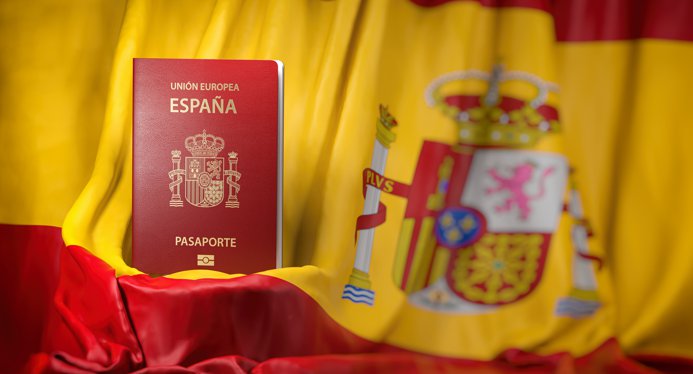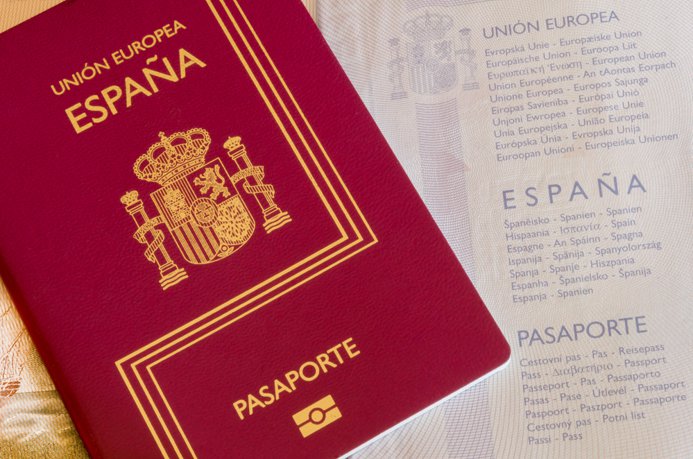Citizenship by investment in Spain in 2024

Unlike a residence permit and permanent residence, Spanish citizenship allows you to stay indefinitely on the territory of this country and enjoy all rights and obligations on an equal basis with citizens born in this country. Spanish citizenship also allows you to participate in the political life of the country, hold public office, and enjoy all the benefits and social services provided for an ordinary citizen.
Spanish law provides for several official ways to obtain citizenship. It can be obtained through investments (including the purchase of real estate), through naturalisation, through family reunification, or by descent.
Ways to obtain citizenship
The basis for obtaining Spanish citizenship in most cases is the legal stay of a foreigner in the status of a resident in the country for a period of 10 years or more. However, in some cases, citizenship can be obtained faster, after 1 or 2 years of stay in the country — through marriage, by right of origin, on the grounds of kinship.
Citizenship by investments
Spain issues a residence permit to foreigners in return for contributing to the country’s economy — this state program is also called the Golden Visa programme. If all the conditions of the programme are met, the investor can obtain a permanent residence permit after five years, and after ten years of living in Spain, apply for Spanish citizenship through naturalisation.
There are several investment options allowed under Spain’s Golden Visa programme:
- Buying a property in Spain costs from 500 thousand euros. It is possible to resell the object five years after the purchase.
- A deposit of 1 million euros or more in a Spanish bank for five years.
- Investments in shares of Spanish companies in the amount of at least 1 million euros for five years.
- Investments of at least 2 million euros in Spanish government bonds.
- Launching the business project, which establishes new job places and develops the Spanish economy.
Property investments are traditionally the most popular among people who are planning to obtain a Spanish Golden Visa, and this is not only due to the low threshold for entering the market. The object of investment can be both commercial and residential property. At the same time, it does not matter to the Spanish authorities how the owner will use the property — for personal residence or for renting.
After obtaining a residence permit, the investor will acquire the right to reside anywhere in Spain. Together with the investor or separately from him, the following can apply for a residence permit: his spouse (in this case, a civil marriage is equated to a legal one), minor children, as well as dependent adult children and relatives in a direct ascending line (parents, grandparents, etc.).
Despite the fact that the Golden Visa programme does not oblige the investor to stay in Spain for a long time, if the purpose is to obtain a passport, the investor must become a tax resident of Spain and stay in the country for a significant part of the year. For 10 years, applicants for citizenship should not leave the country for more than 10 months in total.
The procedure for obtaining Spanish citizenship for investments:
- A residence permit in Spain for the purchase of property or other form of investment for two years.
- The extension of the residence permit for two years, then for another two years.
- After five years of residence in Spain, an investor can apply for permanent residence status. To do this, you need to live permanently in the country, without leaving it for more than ten months for five years.
- After ten years of residence in the country, an investor can obtain Spanish citizenship on a general basis by naturalisation.
Volume of foreign investment in Spanish property by country in 2023
Nationality | 2023 |
Great Britain | 8327 |
Germany | 6350 |
France | 5824 |
Morocco | 4711 |
Belgium | 4649 |
Italy | 4570 |
Romania | 4398 |
Netherlands | 4228 |
Poland | 3123 |
Russia | 2728 |
Source: Indice Registral Actividad Inmobiliaria
Spanish citizenship by residency
Foreigners who have legally resided in Spain for ten years can apply for citizenship. To obtain Spanish citizenship, you must have a permanent residence permit (based on work, study, marriage, property ownership or other legal reasons), know Spanish and demonstrate integration into Spanish society. Each case is considered separately, and there is no absolute guarantee that a foreigner will be granted citizenship.
In some cases, the term may be reduced to five years for political refugees, or up to two years for immigrants from Latin America, Andorra, the Philippines and Portugal and for descendants of Sephardic Jews expelled from the Iberian Peninsula in the XV century.
After a year of living in Spain, they will be able to get a Spanish passport:
- children of foreigners born in Spain;
- children adopted by Spaniards under the age of 18;
- foreigners who have legally married Spanish citizens;
- foreigners whose father or mother, as well as grandfather or grandmother, were of Spanish origin;
- widows and widowers who officially lived with their deceased spouse (a Spanish citizen) for at least a year.

Spanish citizenship through family reunification
A Spanish citizen or a foreigner with a residence permit in Spain can transport family members to the country. To reunite with your family, you must request a special permit from the migration service. However, in this case we are talking about obtaining a residence permit, not citizenship.
A resident inviting relatives to his place must live in Spain for at least a year, have a house (own or rented) and a high permanent income. Relatives of a resident can obtain Spanish citizenship on the basis of naturalisation after 10 years of living in Spain together with the main applicant.
The following relatives are eligible for family reunification:
- spouse;
- minor children;
- adult children who are financially dependent on their parents or are recognized as incapacitated;
- parents over the age of 65 (including the parents of a spouse); it is allowed to transport parents under the age of 65 if they need special care.
Foreigners who are married to Spanish citizens can apply for citizenship after a year of living together. The rest of the family members must have lived in Spain for at least ten years to obtain a Spanish passport.
Citizenship by ancestry (Jus Sanguinis)
In order to acquire Spanish citizenship by ancestry, it is necessary to provide documents confirming kinship, as well as prove the connection of relatives with Spain.
According to the «Jus Sanguinis» rule, a person is considered Spanish if:
- at least one of the parents was born in Spain and is a citizen of the country;
- both parents have a residence permit in Spain and have lived in the country for at least 1 year;
- parents or relatives in the ascending line had Spanish citizenship, which they refused, provided that the applicant had lived in Spain for at least 1 year on the basis of a residence permit;
- the child was found on the territory of Spain, without the possibility to determine his origin.
This method is characterised by the rapidity of obtaining Spanish citizenship, however, only a small circle of applicants who meet the above conditions can apply for it.
.jpg)
Spanish citizenship through marriage
Foreigners who have married Spanish citizens first receive a residence permit. After a year, they can be converted to citizenship under the accelerated programme.
Before marriage, both spouses need to be interviewed to prove that the marriage is not fictitious. The interview is usually conducted by a notary, a court clerk, or an official from the local municipality.
Widows and widowers of Spanish citizens can also obtain citizenship if the couple lived in Spain for a year from the moment of their wedding to their death.
Spanish citizenship by way of option
In the Spanish Civil Code, there is such a thing as an option — the opportunity to obtain citizenship on the basis of adoption or guardianship by Spanish citizens. Even adults have this right, but in order to apply for citizenship in this case, it is necessary to be in the status of an adopted person for at least 2 years. After adoption, the applicant must stay in Spain for at least a year.
Advantages of Spanish citizenship
Obtaining citizenship has a number of undeniable advantages over obtaining permanent residence and residence permit. A foreigner with a Spanish passport can enjoy all the rights and obligations that the indigenous people of this country have. The holder of a Spanish passport also becomes a full EU citizen.
The main advantages:
- Unlimited period of stay in the country. There is no need to renew a permit document such as a visa or residence permit.
- Priority job placement. Spanish companies primarily give preference to applicants with a Spanish passport and EU citizens.
- Business opportunity. It is possible for Spanish citizens to establish their own company in Spain and receive income from business.
- More than 190 countries are available for visa-free travel, including: USA, Japan, Australia.
- Opening an EU bank account under a simplified procedure. The opportunity to open a loan and get a mortgage on terms common to Spanish citizens.
- The right to public service.
- Residence permit for family members. The opportunity to get an education for children on the terms common to Spanish citizens.
- Medical care and the right to social benefits.
Also, a newly minted Spanish citizen receives a number of duties on an equal basis with the indigenous inhabitants of this country:
- pay taxes on time;
- military service;
- minor children are required to study at a general education institution in Spain.
Retirement benefits
Spain has one of the highest pension coefficients in the EU for residents of the country. Persons who have obtained Spanish citizenship have the right to receive a Spanish pension if they have been employed in this country for at least 12 months, and have official work experience of at least 15 years in the territory of any other state.
The retirement age in Spain is 67 years. The minimum pension in Spain is 650 euros, depending on the length of service directly in Spain, this amount can be increased.
Dual citizenship in Spain
Spanish law does not deny dual citizenship. This means that a person applying for Spanish citizenship will not be required to renounce his initial citizenship — both will be recognized equally.
But this is possible only with respect to representatives of those States with which Spain has concluded relevant bilateral agreements, as well as citizens of Latin American countries where Spanish or Portuguese are the official languages, Andorra, the Philippines, Equatorial Guinea and Portugal.
The necessary documents and the procedure for obtaining Spanish citizenship
To apply for Spanish citizenship, you must provide the following documents:
- application form;
- passport with a copy of all pages;
- identification card of a foreigner (residence permit, permanent residence);
- national ID card of the country of origin;
- birth certificate;
- certificate of criminal record in country of origin and Spain;
- information about the place of registration in Spain;
- documentary evidence of the availability of finances;
- receipt of payment of fees and charges for submitting an application for consideration;
- a health certificate obtained at a clinic in Spain.
Additional documents are provided for various categories of citizens:
- for individuals married to a Spanish citizen, it is necessary to provide a marriage certificate and a joint registration;
- for widows/widowers, a death certificate must be provided;
- the court’s decision on the appointment of a guardian for those who apply for citizenship by option;
- to obtain citizenship by ancestry — birth certificates of parents or other relatives in the ascending line.
The procedure for submitting and considering documents for Spanish citizenship
The process of submitting documents for Spanish citizenship is preceded by obtaining a residence permit, and then permanent residence in Spain. To obtain permanent residence, you must legally live in the country for 5 years, without leaving for more than 6 months in a row (to maintain Spanish residency) and 10 months in total for 5 years. After obtaining permanent residence, you must live for another 5 years with the same conditions (no more than 10 months outside Spain in total and no more than 6 months in a row). After that, you can start the procedure for applying for Spanish citizenship. Submission and consideration consists of the following steps:
- Collection and submission of documents. You must submit documents at the place of registration in Spain, at the local registry office (Registro Civil), for this you can make an appointment on the website or by phone. An additional interview with the judge may be scheduled on the day of submission.
- Passing exams. When submitting an application, the day of taking exams is set — for knowledge of the language, as well as the history and culture of Spain. If you have already passed an exam confirming the A2 level and above, you can attach a certificate instead of taking the language test. The second exam — for general knowledge of the culture and history of Spain is mandatory for everyone and consists of 25 questions. If the applicant does not pass the exam the first time, all subsequent attempts are free of charge.
- Consideration of the candidate. It lasts about a year on average. As a result, a notification is sent to a potential Spanish citizen by mail. If there is no response within a year, it is considered that a positive decision has been refused.
- Obtaining documents. In case of a positive decision, the applicant must take an oath in court, as well as sign documents renouncing other existing citizenship. Registration of citizenship and issuance of a passport is carried out directly at the registry office. According to Spanish law, a citizen is required to have a double surname: made up of the surnames of his mother and father.
Grounds for denial of Spanish citizenship
In some cases, due to errors in documents or serious legal violations, you can get a refusal to apply for Spanish citizenship. The most likely reasons are:
- the absence of required documents in the dossier;
- failure to comply with the necessary terms of stay in the country;
- errors in filling out the questionnaire;
- criminal record in Spain or the country of origin or serious legal violations;
- insufficient level of financial security or its complete absence;
- providing false information in documents.
If the refusal is based on documentary errors or lack of information, it is possible to submit the application again. If the problem is a violation of the law or the provision of false information, the violator faces a fine or deportation from the country.
Thus, obtaining Spanish citizenship opens up wide opportunities for personal realization in Spain, as well as the opportunity to enjoy state rights and protection on an equal basis with the indigenous population of the country. If we naturally approach the issue of obtaining citizenship, then it is quite possible to obtain it within 10 years.
The most affordable way to legalise in Spain today is to invest in property and obtain a Golden Visa for investments. Our team will provide professional advice on investment issues in order to obtain a residence permit in Spain.
Contact us
Common questions about obtaining Spanish citizenship
- unlimited period of stay in the country;
- priority job placement;
- business opportunity;
- more than 190 countries are available for visa-free travel, including: USA, Japan, Australia;
- opening an EU bank account under a simplified procedure;
- the right to public service;
- residence permit for family members;
- medical care and the right to social benefits.
Except for Latin American countries, no. When obtaining Spanish citizenship, applicants will have to sign an obligation to renounce citizenship of origin.
- application form;
- passport with a copy of all pages;
- identification card of a foreigner (residence permit, permanent residence);
- ID card of country of origin;
- birth certificate;
- certificate of criminal record in country of origin and Spain;
- information about the place of registration in Spain;
- documentary evidence of the availability of finances;
- receipt of payment of fees and charges for submitting an application for consideration;
- a health certificate obtained at a clinic in Spain.
Yes, after submitting the dossier, you must take a language test confirming the language level from A2 and above, as well as a test of knowledge of the culture and history of the country. In some cases, an interview with a judge may be required.
- the absence of required documents in the dossier;
- failure to comply with the necessary terms of stay in the country;
- errors in filling out the questionnaire;
- criminal record in Spain or the country of origin or serious legal violations;
- insufficient level of financial security or its complete absence;
- providing false information in documents.
Persons who have acquired Spanish citizenship have the right to receive a Spanish pension if they have been employed in this country for at least 12 months, and have official work experience of at least 15 years in the territory of any other state.
We will send you a content digest not more than once a week
- Property Prices
- Buying and Registering
- Mortgage
- Residence
- Citizenship (getting passport)
- Property Maintenance
- Education
- Taxes
























.jpg)

